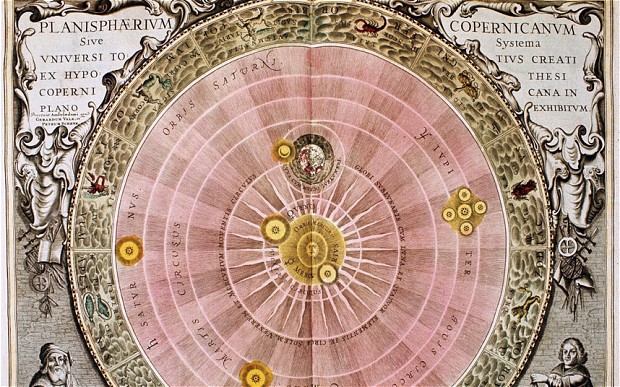- HOME
- INTRO TO THE FORUM
- USE AND MISUSE
- BADLY WRITTEN, BADLY SPOKEN
- GETTING
TO KNOW ENGLISH - PREPARING FOR ENGLISH PROFICIENCY TESTS
- GOING DEEPER INTO ENGLISH
- YOU ASKED ME THIS QUESTION
- ADVOCACIES
- EDUCATION AND TEACHING FORUM
- ADVICE AND DISSENT
- MY MEDIA ENGLISH WATCH
- STUDENTS' SOUNDING BOARD
- LANGUAGE HUMOR AT ITS FINEST
- THE LOUNGE
- NOTABLE WORKS BY OUR VERY OWN
- ESSAYS BY JOSE CARILLO
- Long Noun Forms Make Sentences Exasperatingly Difficult To Grasp
- Good Conversationalists Phrase Their Tag Questions With Finesse
- The Pronoun “None” Can Mean Either “Not One” Or “Not Any”
- A Rather Curious State Of Affairs In The Grammar Of “Do”-Questions
- Why I Consistently Use The Serial Comma
- Misuse Of “Lie” And “Lay” Punctures Many Writers’ Command Of English
- ABOUT JOSE CARILLO
- READINGS ABOUT LANGUAGE
- TIME OUT FROM ENGLISH GRAMMAR
- NEWS AND COMMENTARY
- BOOKSHOP
- ARCHIVES
Click here to recommend us!
TIME OUT FROM ENGLISH GRAMMAR
This section features wide-ranging, thought-provoking articles in English on any subject under the sun. Its objective is to present new, mind-changing ideas as well as to show to serious students of English how the various tools of the language can be felicitously harnessed to report a momentous or life-changing finding or event, to espouse or oppose an idea, or to express a deeply felt view about the world around us.
The outstanding English-language expositions to be featured here will mostly be presented through links to the websites that carry them. To put a particular work in better context, links to critiques, biographical sketches, and various other material about the author and his or her works will usually be also provided.
Aside from plays and poetry, did Shakespeare also dabble in sci-fi?
On the run-up to William Shakespeare’s 450th birth anniversary on April 2014, the extraordinary interest expressed in his plays about science and the scientific discoveries of his time is stoking speculation that the Bard also dabbled in science fiction. Is it then possible that Shakespeare preceded Mary Shelley of Frankenstein fame by 200 years in writing sci-fi?
This intriguing prospect was raised in “William Shakespeare, the ‘king of infinite space’”, an article by science journalist Dan Falk that came out in the January 27, 2014 issue of The Telegraph UK. Falk is the author of the book The Science of Shakespeare that’s scheduled for publication in April.

FROM THE TELEGRAPH UK
Falk argues that Shakespeare had a great interest in astronomy—his plays being replete with references to the Sun, Moon, stars, comets, eclipses, and heavenly spheres—at a time when the Copernican theory was attracting early adherents in Britain. Copernicus had just shown that contrary to long-held religious dogma, it was the Sun and not Earth that was at the center of the Universe, with Earth and the other planets rotating around it in circular paths (“Copernicus’ heliocentric theory as the mother of all paradigm shifts”). Falk therefore believes it’s likely that when Hamlet envisions himself in the play as “a king of infinite space,” Shakespeare was alluding to the new, infinite universe that was the logical consequence of Copernicus’ idea.
Falk cites several other instances where Shakespeare’s demonstrated a surprising alertness and interest in the scientific naturalism of his time, as in the play Julius Caesar, when Cassius makes this memorable declaration: “The fault, dear Brutus, is not in our stars, but in ourselves, that we are underlings.”
To these speculations, though, Falk makes this caveat: “As with the Bible, one can find anything in Shakespeare if one looks hard enough. He was not a scientist, but perhaps he was more conscious of changing conceptions of our world than we imagine.”
Read Dan Falk’s “William Shakespeare, the ‘king of infinite space’” in The Telegraph now!
ANOTHER INTERESTING READING:
In a review of Gregory Berns’s book How Dogs Love Us (New Harvest, 272 pages) in the January 23, 2014 issue of the Boston Review, Colin Dayan argues that for the author to claim that dogs have the reasoning capacity of a young child is to continue to ignore what it is that dogs possess that we do not. “Dogs are not people,” Dayan says. “Dogs are not humans. But we are desperate to appropriate whatever it means to be dog and to make that over in our image.”
Read Colin Dayan’s “Dogs are Not people” in the BostonReview.net now!
RELATED READING EARLIER IN THE FORUM:
Looking objectively at a famous dog’s life-saving heroism






